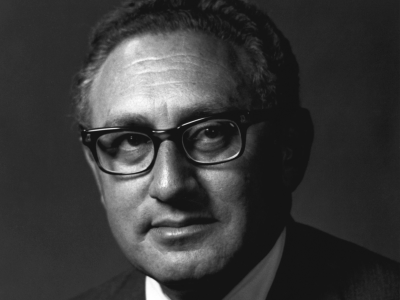Henry A. Kissinger, the enigmatic and polarising figure who shaped much of the United States foreign policy in the tumultuous 1970s, died on 29 November 2023 at the age of 100. A Nobel laureate, Kissinger’s vast influence on international diplomacy was often overshadowed by the profound controversies and moral debates spurred by his actions.
Born in Germany in 1923, Kissinger fled Nazi persecution and found refuge in the United States, rising to become one of the most influential yet divisive figures in American politics. Serving as National Security Advisor and Secretary of State under Presidents Nixon and Ford, he left an indelible mark on the world stage.

Kissinger’s diplomatic achievements were significant. He orchestrated the historic détente with the Soviet Union, opened diplomatic relations with the People’s Republic of China, and played a pivotal role in negotiating the Paris Peace Accords, ostensibly ending U.S. involvement in the Vietnam War. His efforts earned him the Nobel Peace Prize in 1973, a decision that remains contentious to this day.
However, Kissinger’s legacy is deeply marred by actions now widely regarded as atrocities. His authorisation of secret bombings in Cambodia and Laos during the Vietnam War led to massive civilian casualties and destabilisation. In Latin America, his support for military coups and authoritarian regimes, most notably in Chile, where the U.S. facilitated the overthrow of President Salvador Allende, left a legacy of human rights abuses.
Kissinger’s realpolitik approach often led him to support authoritarian regimes that were aligned with U.S. interests during the Cold War, sometimes at the expense of human rights considerations. This was evident in his policies towards countries like Indonesia during its invasion of East Timor in 1975, which resulted in a humanitarian crisis. His actions further cemented his reputation as a figure willing to sacrifice moral principles for geopolitical gains.

(Jay Godwin, Public domain, via Wikimedia Commons)
Historians and political analysts remain divided over Kissinger’s impact. Some view him as a pragmatic strategist who navigated an era of geopolitical upheaval with skill and foresight. Others denounce him as a symbol of moral bankruptcy in foreign policy, holding him accountable for decisions that led to widespread suffering.
As the world reflects on Kissinger’s death, the debate over his legacy continues to evoke strong emotions and conflicting interpretations. What remains clear is that Kissinger was a man who, for better or worse, shaped the contours of international politics in ways that will be studied, debated, and contested for generations to come.





